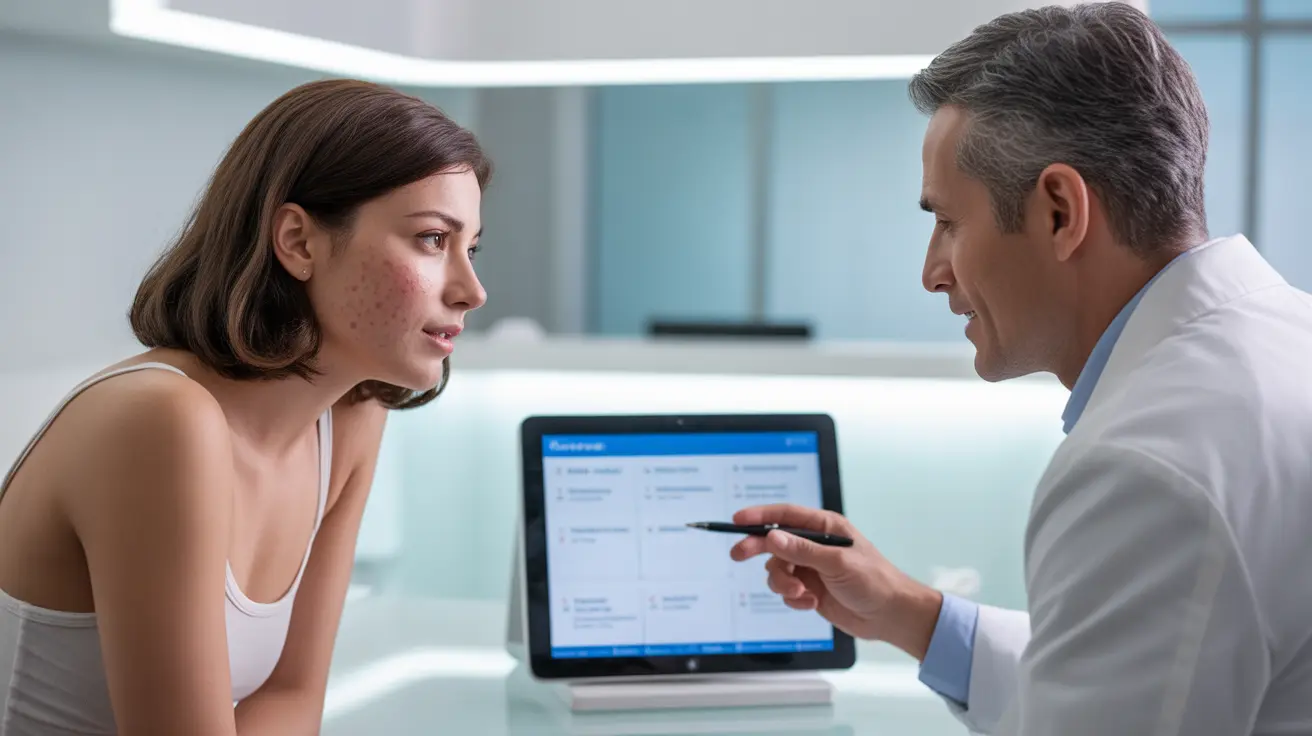Living with severe acne can be physically and emotionally challenging. Unlike mild to moderate acne, severe cases often require professional medical intervention and a carefully planned treatment approach. Understanding your options and knowing when to seek professional help can make a significant difference in managing this condition effectively.
This comprehensive guide explores the most effective medical treatments, important considerations for various therapies, and essential care practices to help you navigate severe acne treatment with confidence.
Understanding Severe Acne and When to Seek Help
Severe acne is characterized by deep, painful nodules and cysts that can lead to permanent scarring if left untreated. When over-the-counter treatments fail to improve your condition, or if you're experiencing widespread breakouts with nodular or cystic acne, it's crucial to consult a healthcare provider promptly.
Professional Treatment Options
Oral Isotretinoin Treatment
Isotretinoin is often considered the most effective treatment for severe acne. This powerful medication works by reducing oil production, fighting bacteria, and decreasing inflammation. Treatment typically lasts 4-6 months, with many patients experiencing long-term remission after completing a course.
Due to potential side effects and risks, isotretinoin treatment requires careful monitoring and regular blood tests. Patients must also participate in pregnancy prevention programs due to the medication's potential to cause birth defects.
Hormonal Therapy Options
For women with severe acne, hormonal treatments can be highly effective. Birth control pills containing both estrogen and progesterone can help regulate hormone levels that contribute to acne formation. These medications are often prescribed alongside other treatments for optimal results.
Prescription Antibiotics and Topical Medications
Oral antibiotics may be prescribed to reduce bacteria and inflammation. These are typically used in combination with prescription-strength topical treatments containing ingredients like benzoyl peroxide, retinoids, or antibiotics to enhance effectiveness.
Essential Home Care Practices
Do's for Severe Acne Management
- Cleanse gently twice daily with a non-comedogenic cleanser
- Use only non-comedogenic skincare products and makeup
- Apply medications as prescribed, consistently
- Protect your skin from sun exposure
- Keep hands and hair away from affected areas
Don'ts for Severe Acne Management
- Don't pick, squeeze, or pop acne lesions
- Avoid harsh scrubs or excessive exfoliation
- Don't skip prescribed medications
- Don't use multiple treatments without consulting your doctor
- Avoid touching your face frequently
Frequently Asked Questions
What are the most effective treatments for severe acne recommended by dermatologists?
Dermatologists typically recommend oral isotretinoin as the most effective treatment for severe acne, followed by combinations of oral antibiotics, topical medications, and hormonal therapies where appropriate.
How does oral isotretinoin work and what are the important safety precautions?
Isotretinoin works by reducing oil production, fighting bacteria, and decreasing inflammation. Important safety precautions include regular blood tests, pregnancy prevention, and monitoring for potential side effects under medical supervision.
Can hormonal therapies like birth control pills help with severe acne?
Yes, hormonal therapies, particularly combined oral contraceptives, can be very effective for women with severe acne by helping to regulate hormone levels that contribute to acne formation.
What home care practices should be followed or avoided to prevent worsening severe acne?
Follow a gentle skincare routine, use only non-comedogenic products, and maintain consistent treatment application. Avoid picking at lesions, using harsh scrubs, and touching your face frequently.
When should I see a doctor or dermatologist for severe acne instead of trying self-treatment?
Seek professional help if you have deep, painful cysts or nodules, if over-the-counter treatments aren't working after 4-6 weeks, or if you're developing scars. Additionally, consult a professional if your acne is causing significant emotional distress.




